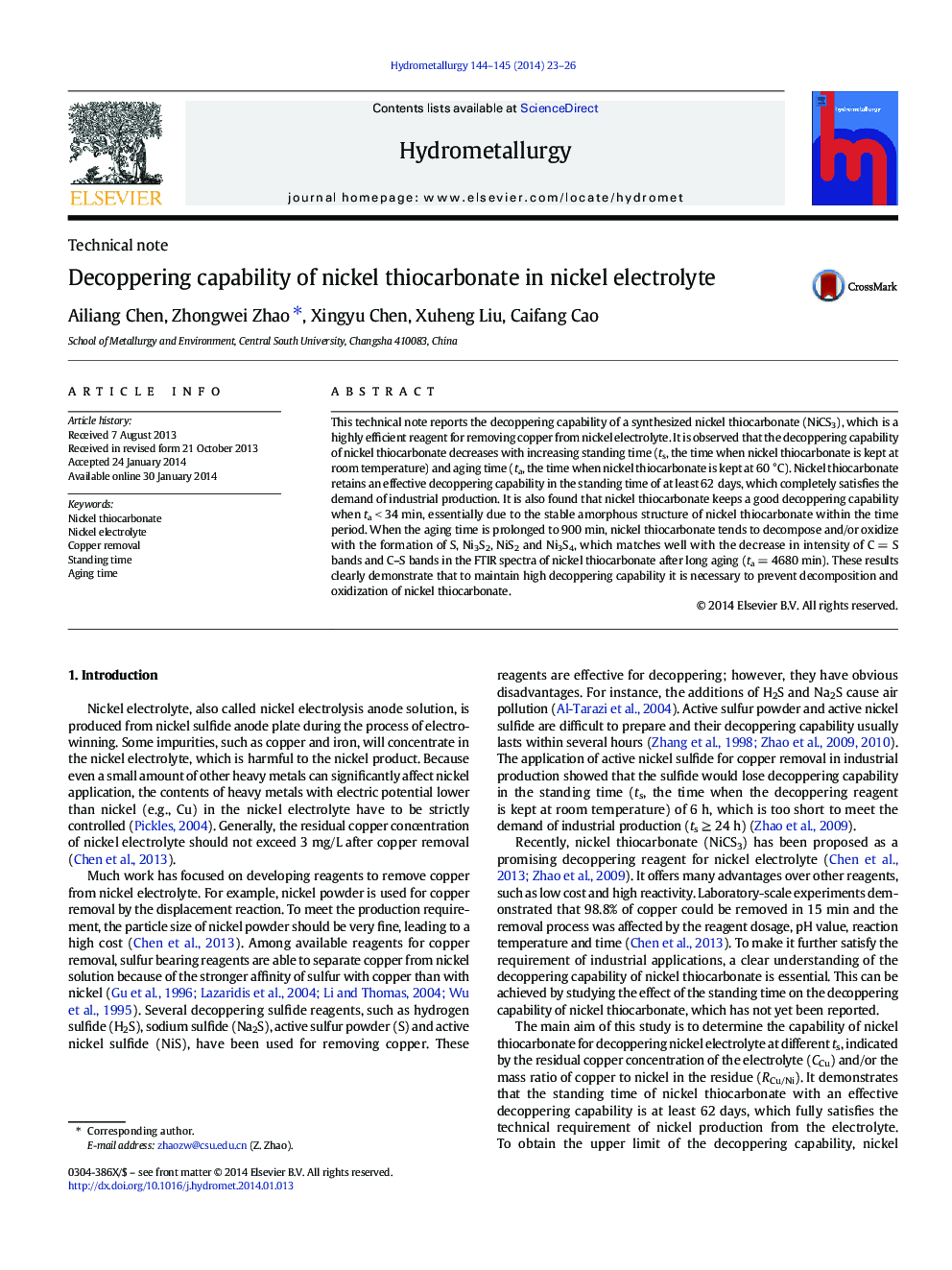| Article ID | Journal | Published Year | Pages | File Type |
|---|---|---|---|---|
| 212191 | Hydrometallurgy | 2014 | 4 Pages |
•NiCS3 retains an effective decoppering capability in the standing time of 62 days.•NiCS3 tends to lose its decoppering capability beyond the aging time of 900 min.•The decomposition and/or oxidization of NiCS3 cause the decoppering capability loss.
This technical note reports the decoppering capability of a synthesized nickel thiocarbonate (NiCS3), which is a highly efficient reagent for removing copper from nickel electrolyte. It is observed that the decoppering capability of nickel thiocarbonate decreases with increasing standing time (ts, the time when nickel thiocarbonate is kept at room temperature) and aging time (ta, the time when nickel thiocarbonate is kept at 60 °C). Nickel thiocarbonate retains an effective decoppering capability in the standing time of at least 62 days, which completely satisfies the demand of industrial production. It is also found that nickel thiocarbonate keeps a good decoppering capability when ta < 34 min, essentially due to the stable amorphous structure of nickel thiocarbonate within the time period. When the aging time is prolonged to 900 min, nickel thiocarbonate tends to decompose and/or oxidize with the formation of S, Ni3S2, NiS2 and Ni3S4, which matches well with the decrease in intensity of C = S bands and C–S bands in the FTIR spectra of nickel thiocarbonate after long aging (ta = 4680 min). These results clearly demonstrate that to maintain high decoppering capability it is necessary to prevent decomposition and oxidization of nickel thiocarbonate.
